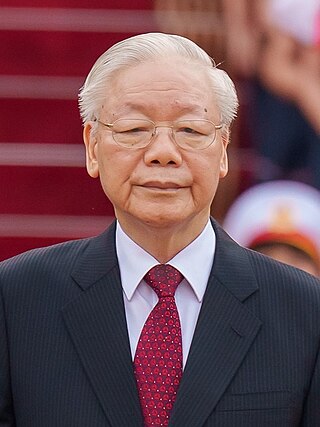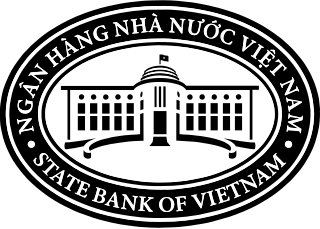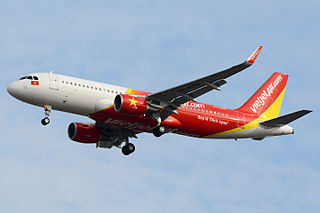 | |
Czech Republic | Vietnam |
|---|---|
Czech Republic–Vietnam relations (Czech : Česko-vietnamské vztahy; Vietnamese : Quan hệ Séc – Việt Nam) are foreign relations between the Czech Republic (Czechia) and Vietnam.
 | |
Czech Republic | Vietnam |
|---|---|
Czech Republic–Vietnam relations (Czech : Česko-vietnamské vztahy; Vietnamese : Quan hệ Séc – Việt Nam) are foreign relations between the Czech Republic (Czechia) and Vietnam.
The foreign relations between Czechoslovakia and Vietnam were established on February 2, 1950. [1]
When the Czech Republic and Slovakia gained independence on 1 January 1993, both countries inherited all the established relations between former Czechoslovakia and Vietnam. [2]
In January 2025, the bilateral relations were raised to strategic partnership, making Vietnam the Czech Republic's first strategic partner in Southeast Asia, and the Czech Republic the first Central European country for Vietnam to have a strategic partnership with. [3] Signed by the Vietnamese prime minister Pham Minh Chinh and his Czech counterpart Petr Fiala, the elevation of relations status marks the 75th anniversary of diplomatic and historic ties established between Czechoslovakia and the Democratic Republic of Vietnam. [4] [1]
As of 2018, there were 61,097 Vietnamese citizens with a residence permit in the Czech Republic, making them one of the largest immigrant groups in the country and the largest non-European group. [5]
Vietnam does not tell the number of foreign nationals per country in 2019 Census (it shows only 3,553 foreigners total [6] ). In 2011, Committee on Foreign Affairs of Czech Parliament cited that "Czech community in Vietnam does not exist yet". [7]
In September 2021, COVID-19 vaccination of Czech citizens living in Vietnam, organized by Czech Embassy in Hanoi, was attended by "almost 400" people. [8]
In 2010s, Czech Republic and Vietnam consider each other as strategic markets with the aim to reach US$1 billion in two-way trade in the near future. As of 2015, Czech imports from Vietnam include seafood, farm produce such as coffee, tea and pepper. Vietnamese imports from the Czech republic are industrial goods, precision engineering, petrochemical equipment and energy. [9]
One of the successful Czech companies in Vietnam is Home Credit [10] [n 1] , which in February 2024 was sold by its owner PPF Group to the Thai Siam Commercial Bank. [11] [12]
Czech companies including Czechoslovak Group, Colt CZ Group, Omnipol, STV Group, and Aero Vodochody have supplied aircraft and firearms to Vietnam, [13] [14] [15] [16] [17] with both countries viewing defence cooperation as an important part of their overall relations. [18] [13]
During the January 2025 official visit to the Czech Republic, the Vietnamese prime minister Pham Minh Chinh met with Skoda Group's CEO Klaus Zellmer, who viewed Vietnam as "an important gateway to the ASEAN market" with "the potential to become Skoda's car manufacturing export hub for ASEAN and other markets". [19] The prime minister also held discussions with Pavel Tykač, the owner of Sev.en Energy Group and the football club SK Slavia Praha, who requested the Vietnamese authorities "expedite the approval process for acquiring a controlling stake" in the BOT-based Mong Duong 2 thermal power plant. [20] The prime minister also urged Jiri Smejc, the CEO of PPF Group to reinvest. [21]
Under an agreement signed in January 2025, pilot trainees at Vietjet Aviation Academy will be provided training by F Air in Czech Republic, which will provide Multi-Crew Pilot License program adhering to European Aviation Safety Agency standards. [22]
 |  |

As of September 2024, Vietnam maintains diplomatic relationships with 191 UN member states, State of Palestine and Sahrawi Arab Democratic Republic. In 2011 the Central Committee of the Communist Party of Vietnam, at the 11th National Congress of the Communist Party of Vietnam, released an official statement about Vietnam's foreign policy and a section of the statement stated: "Vietnam is a friend and reliable partner of all countries in the international community, actively taking part in international and regional cooperation processes. Deepen, stabilize and sustain established international relations. Develop relations with countries and territories in the world, as well as international organizations, while showing: respect for each other's independence; sovereignty and territorial integrity; non-interference in each other's international affairs; non-use or threat of force; settlement of disagreements and disputes by means of peaceful negotiations; mutual respect, equality and mutual benefit."

Transportation in Vietnam is improving rapidly in terms of both quantity and quality. Road traffic is growing rapidly but the major roads are dangerous and slow to travel on due to outdated design and an inappropriate traffic mix. In recent years, the construction of expressways has accelerated. Air travel is also important for long-distance travel. The two major metropolises of Hanoi and Ho Chi Minh City have operating metro networks which are currently being expanded.

Tân Sơn Nhất International Airport is an international airport serving Ho Chi Minh City, the most populous city in Vietnam. The airport is located in the Tân Bình district within the Ho Chi Minh City metropolitan area.

Lê Khả Phiêu was a Vietnamese politician who served as General Secretary of the Communist Party of Vietnam from December 1997 to April 2001. Lê Khả Phiêu served in the Vietnam People's Army during the First and Second Indochina Wars, join in the Cambodian war, and was Head of the General Political Department of the Vietnam People's Army.

Lê Đức Anh was a Vietnamese politician and general who served as the fifth President of Vietnam from 1992 to 1997. He previously led the Vietnamese forces in Cambodia throughout the 1980s. He was regarded as a conservative who advocated maintaining tight party control over domestic policies.

Nguyễn Phú Trọng was a Vietnamese politician and communist theorist who served as general secretary of the Communist Party of Vietnam from 2011 until his death in 2024. As the head of the party's Secretariat, Politburo and Central Military Commission, Trọng was considered Vietnam's paramount leader. From 2018 to 2021, he also served concurrently as the tenth president of Vietnam.

The State Bank of Vietnam is the central bank of Vietnam. Organized as a ministry-level body under the Government of Vietnam, it is the sole issuer of the national currency, the Vietnamese đồng. As of 2024 it holds over USD 100 million in foreign exchange reserves.

Russia–Vietnam relations date back formally to 30 January 1950, when the Union of Soviet Socialist Republics established an embassy to North Vietnam. The Soviet Union was one of the first countries in the world to recognize and formally establish diplomatic relations with Vietnam, laying the foundations for strong and cooperative friendship between the two countries.

Vietjet Aviation Joint Stock Company, operating as VietJet Air or Vietjet, is a Vietnamese low-cost airline based in Hanoi. It was the first privately owned airline to be established in Vietnam, being granted its initial approval to operate by the Vietnamese Ministry of Finance in November 2007. As of its launch in December 2011, it became the second private airline to offer domestic service in Vietnam, as well as the fifth airline overall to offer civil domestic flights. VietJet Air is owned by Sovico Holdings, HDBank, other organisational investors, and individual stakeholders.

India–Vietnam relations, also known as Indian-Vietnamese relations, are the bilateral relations of India and Vietnam.

Pakistan-Vietnam relations, or Pakistani-Vietnamese relations, refers to the bilateral relationship between the Socialist Republic of Vietnam and Islamic Republic of Pakistan. The relationship is largely based on mutual trade and international political cooperation between the two countries. Pakistan is represented in Vietnam by its embassy in Hanoi, and Vietnam also maintains an embassy in Islamabad. During the Cold War, Pakistan maintained close ties with the United States-led Western Bloc to counter rival India's allegiance with the Soviet Union and Eastern Bloc. Throughout the 1960s and 1970s, the United States was involved in the Vietnam War against Soviet-backed North Vietnam while in the same time period, Pakistan had engaged in two major wars with neighbouring India in 1965 and 1971, the latter of which resulted in a devastating defeat for Pakistan and saw the emergence of an independent Bangladesh. Due to the fact that Pakistan was an ally with the United States and had begun to indirectly wage war against the Soviets in Afghanistan with heavy U.S.−backing, relations became strained between the two, with Pakistan closing its diplomatic mission in Vietnam in 1980 and Vietnam doing the same in 1984. However, relations greatly improved in the 2000s, and Pakistan reopened its embassy in Hanoi in October 2000. Vietnam also reopened its embassy in Islamabad and trade office in Karachi in December and November 2005, respectively. Relations between the two countries have continued to remain friendly, with Vietnam expressing an interest in increased economic and military cooperation with Pakistan. The heads of both nations have in recent times paid official visits to each other, with Pakistani President Pervez Musharraf visiting Vietnam in May 2001 and Vietnamese President Trần Đức Lương also paying an official visit to Pakistan in March 2004. Throughout the following decade, several visits were made by various Vietnamese and Pakistani ministries to each other. A major part of Pakistan's pursuit to enhance its relationship with Vietnam is outlined in Pakistan's "Vision East Asia" strategy. The emergence of such a strategy came as a result of Pakistan's desire to balance its relations with Vietnam and other East Asian / Southeast Asian states by making an effort to circumvent Pakistan's close relationship with China and Vietnam's growing relationship with India—the former being a cause of concern for Vietnam due to its tense relationship with China and the latter being a cause of concern for Pakistan due to its rivalry and history of armed conflict with India.

Visitors to Vietnam must obtain either an e-Visa or a visa in advance, unless they are citizens of one of the visa-exempt countries.

Indonesia and Vietnam established diplomatic relations in 1955. Indonesia has an embassy in Hanoi and a consulate general in Ho Chi Minh City while Vietnam has an embassy in Jakarta. Both are neighboring nations that have a maritime border which lies on the South China Sea and are members of ASEAN and APEC.

Ukraine–Vietnam relations are the bilateral relations between Ukraine and Vietnam. Vietnam recognized Ukraine's independence from the Soviet Union on 27 December 1991. Diplomatic relations between the two countries were established on 23 January 1992. The embassy of Vietnam in Ukraine started its operations in 1993, and the embassy of Ukraine in Vietnam was opened in 1997.

Home Credit B.V. is an international non-bank financial institution founded in 1997 in the Czech Republic and headquartered in Netherlands. The company operates in 9 countries and focuses on installment lending primarily to people with little or no credit history. As of 30 June 2020 the Group has cumulatively served over 135.4 million customers. Major shareholder of the Group is PPF, a privately held international investment group whose founder and major beneficiary was Petr Kellner with 88.62% stake.

Singapore–Vietnam relations refer to the bilateral relations between the Republic of Singapore and the Socialist Republic of Vietnam. Singapore and Vietnam started the trade relations in the 19th century. Due to the anti-communist policy of Singapore, Singapore supported South Vietnam before the unification of Vietnam. Singapore also started formal diplomatic relations with North Vietnam on August 1, 1973. After the unification of Vietnam, Singapore started to improve its relations with the Socialist Republic of Vietnam. Relations worsened during the Cambodian–Vietnamese War, but have improved once more after the People's Army of Vietnam withdrawal from Cambodia.

Canada and Vietnam have maintained bilateral relations since 1973. Both nations are members of the Asia-Pacific Economic Cooperation, Organisation internationale de la Francophonie and the United Nations.

Poland–Vietnam relations are the current and historical relations between Poland and Vietnam. Poland has an embassy in Hanoi and Vietnam has an embassy in Warsaw.

Phạm Minh Chính is a Vietnamese politician and former public security lieutenant general. He has served as the eighth prime minister of Vietnam since 2021, and currently ranks third in the Communist Party after General Secretary Tô Lâm and President Lương Cường